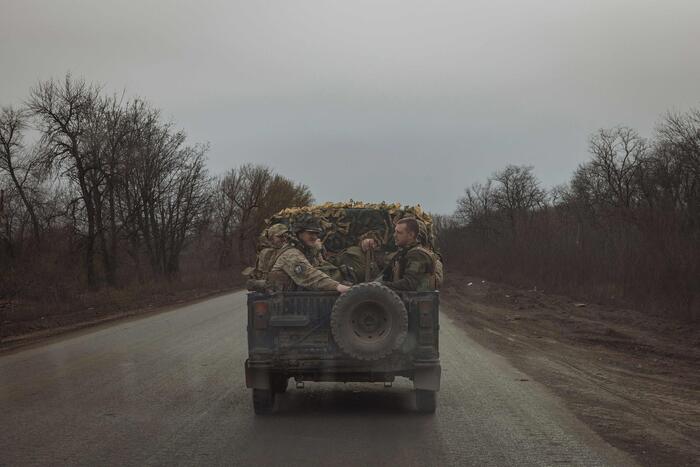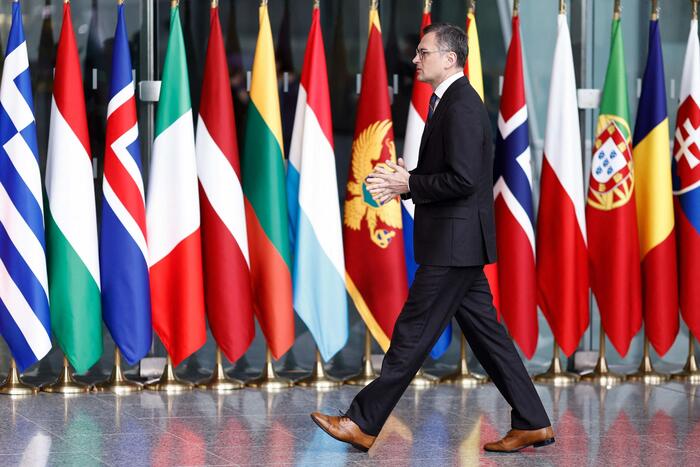Enlarge image
NATO Secretary General Jens Stoltenberg
Photo:
Olivier Matthys / AP
100,000 Russian soldiers stand near the border with Ukraine, and not only the government in Kiev fears an invasion: The relationship between Russia and the West is worse than it has been in a long time.
The NATO states and representatives of Moscow have now met for the first time in more than two years for talks in the NATO-Russia Council.
The differences stand out clearly.
NATO Secretary General Jens Stoltenberg said these were difficult to bridge.
"That was not an easy discussion." In the absence of rapprochement, there is still "a real risk of armed conflict in Europe," said Stoltenberg.
"Russia is the aggressor."
The NATO states are ready for further talks about arms control, for example.
As a first sign of accommodation, NATO wants to reopen the Russian representation at its Brussels headquarters and the alliance's office in Moscow.
After suspected Russian spies were exposed at NATO headquarters in the fall, both were closed.
At the same time, however, Stoltenberg affirmed that Russia had no say in the question of Ukraine's possible accession to NATO.
Rather, the government in Moscow must ensure that the Ukraine crisis is de-escalated.
Russia rejects allegations that it is preparing to invade Ukraine.
The government in Moscow is demanding security guarantees from NATO, including a promise that Ukraine will not be accepted into the transatlantic military alliance.
Stoltenberg said NATO's principles are non-negotiable.
The alliance is not an attack alliance, and expanding its members is not pursuing an aggressive strategy.
Nonetheless, they are prepared for Russia to continue seeking confrontation.
For the Russian government, among others, Deputy Foreign Minister Alexander Gruschko and the Deputy Defense Minister, Alexander Fomin, took part in the meeting at NATO headquarters.
The NATO countries were represented by their ambassadors to the military alliance or by representatives from the capital cities.
State Secretary Andreas Michaelis was there for Germany and Vice Foreign Minister Wendy Sherman for the USA.
Further talks planned
Sherman criticized Russia for not really putting anything new on the table at the meeting.
But it is important that the Russian delegation has not ruled out further talks, said Sherman in Brussels.
Regarding the Nord Stream 2 gas pipeline, Sherman said it was clear that should Russia attack Ukraine, "from our perspective it is very difficult to imagine that gas will flow through the pipeline".
The NATO-Russia Council was established in 2002.
It met for the last time in July 2019.
On Thursday there are to be further talks with Russia within the framework of the Organization for Security and Cooperation in Europe (OSCE).
In a government survey in the Bundestag, Chancellor Olaf Scholz (SPD) described the situation on the Russian-Ukrainian border as a "serious threat to security in Europe".
SPD parliamentary group leader Rolf Mützenich, however, told the "taz" that he could "understand the Russian threat analysis even if I did not share it."
The military spending of NATO is many times higher than that of Russia.
There is an uncontrolled arms race on both sides, Mützenich said.
NATO and Russia should talk about this.
ulz / Reuters / AFP









